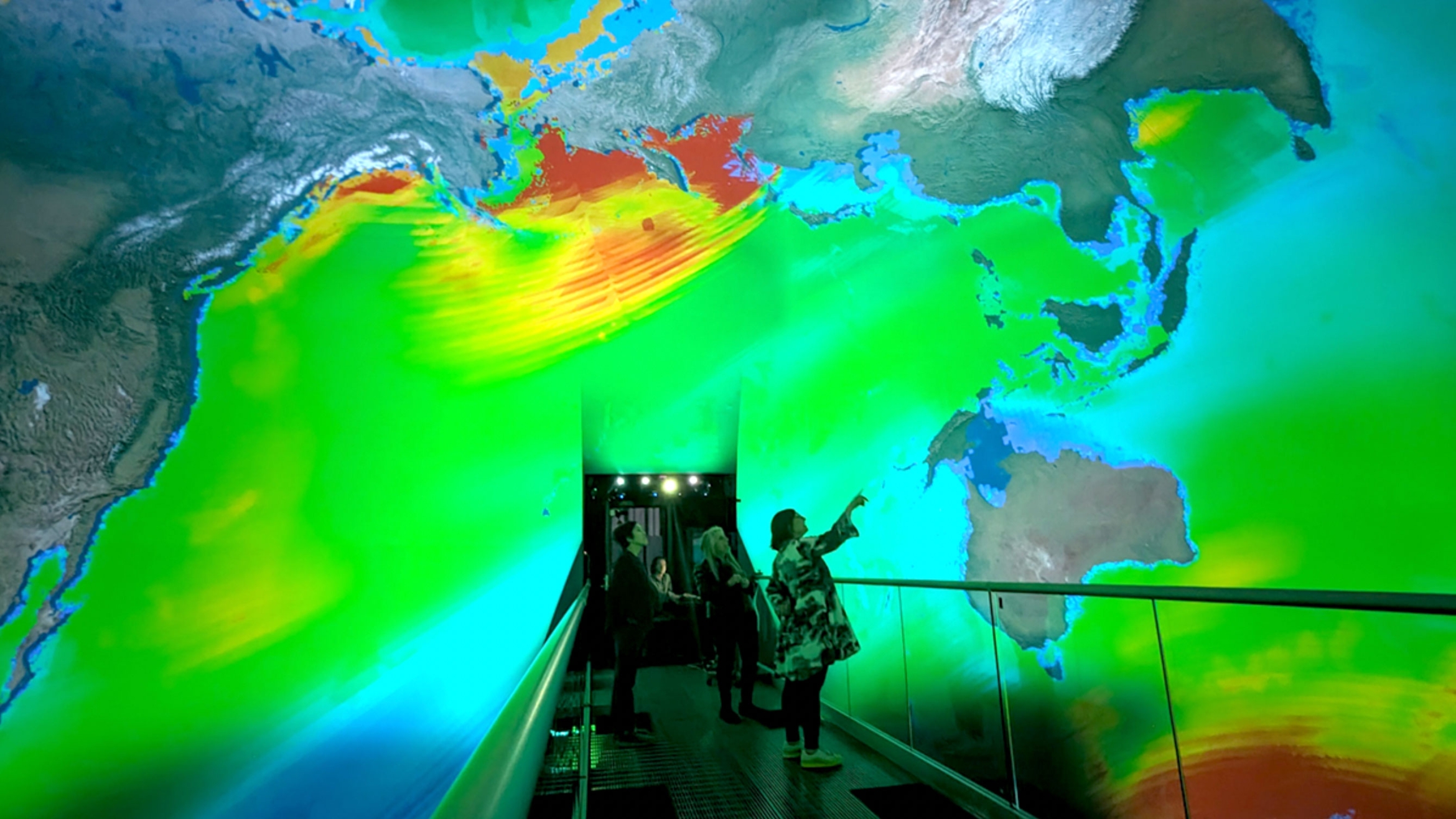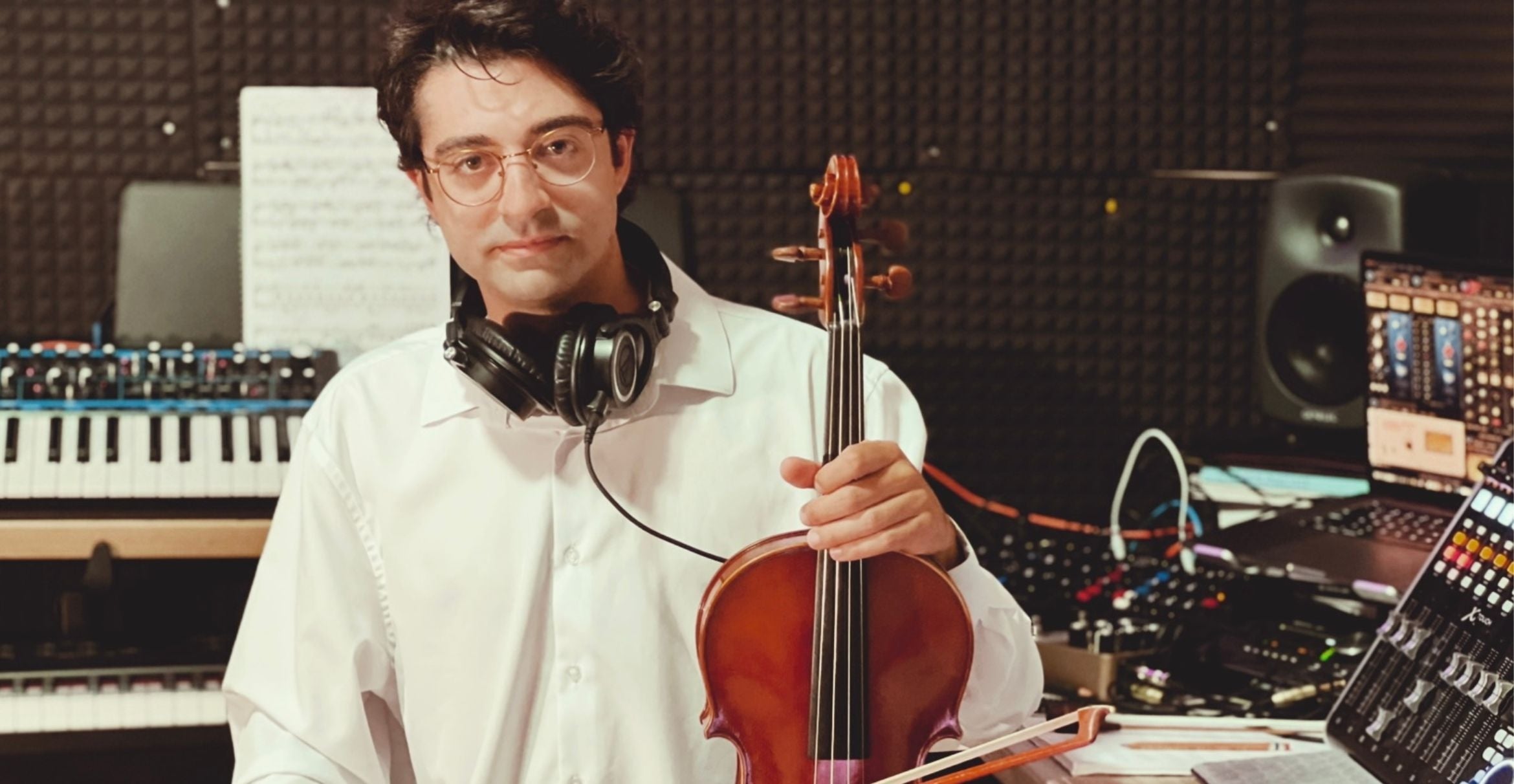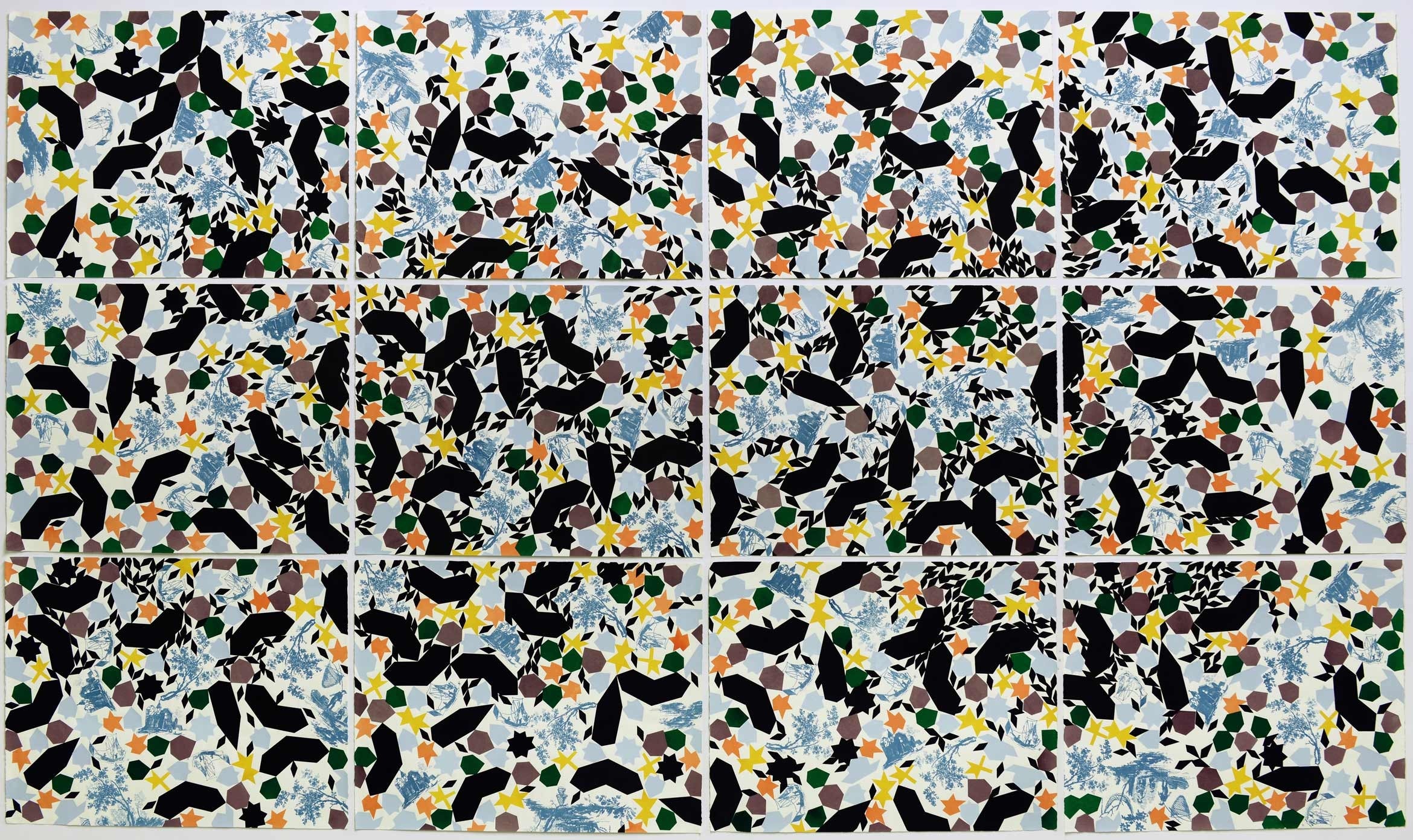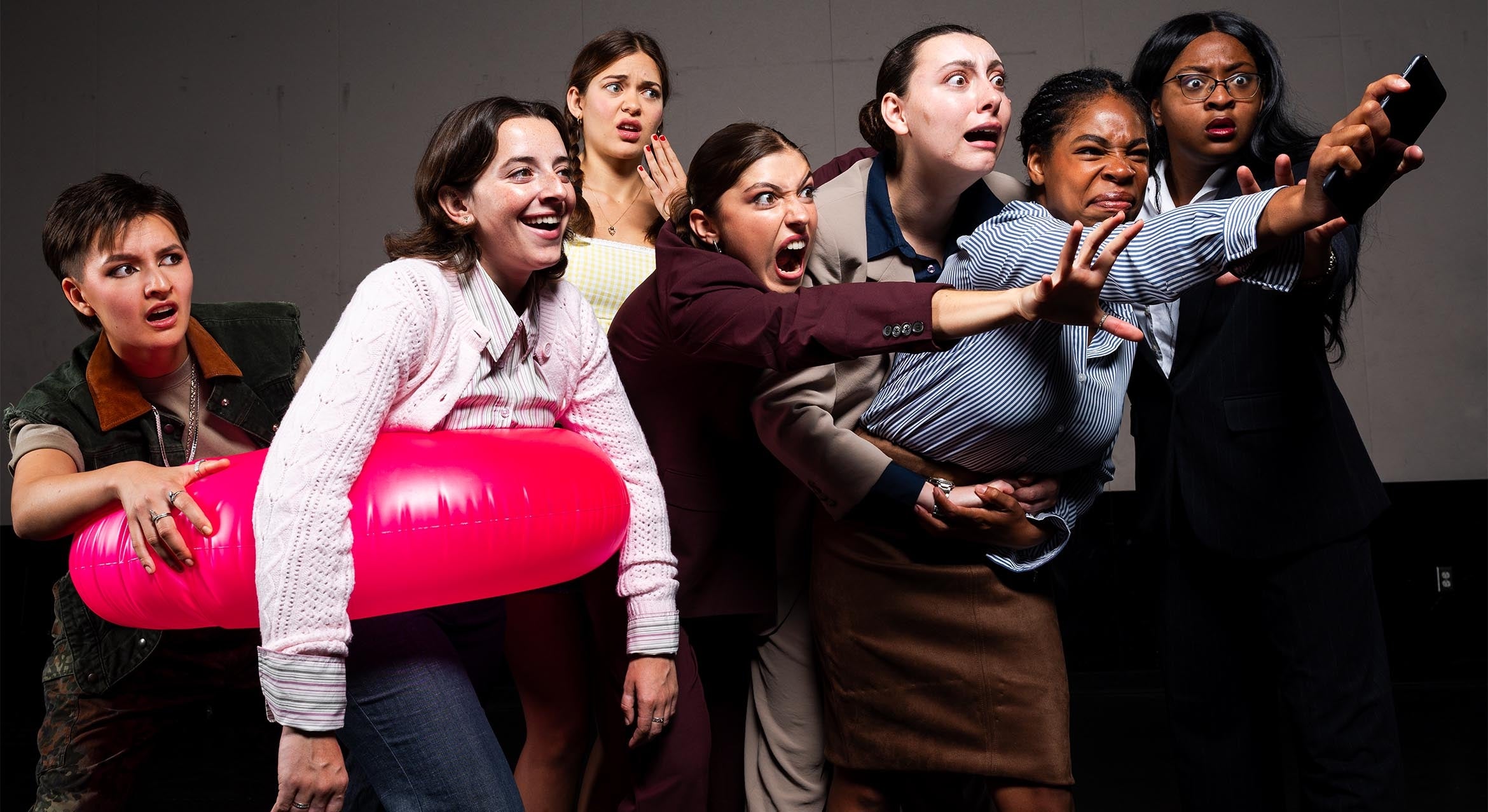
A three-story metal sphere in an echo-free chamber pulses with life. Inside, a new multisensory installation blends cutting-edge science with art to examine the fragility and resilience of our world’s oceans.
Known for its immersive sound and visual experiences, the AlloSphere Research Facility at the California NanoSystems Institute, UC Santa Barbara, is hosting a series of public screenings of “Sketches of Sensorium,” inspired by the late environmental artist and founder of the ecological art movement Newton Harrison’s (1932–2022) long-term project, “Sensorium for the World Ocean.”
“Through interactive, immersive visualization and sonification of these complex systems, we may discover the most intelligent and wise directions to pursue for a healthier, united world,” said JoAnn Kuchera-Morin, the AlloSphere’s director and a professor of media arts and technology, who composed the spatial audio for the AlloSphere’s 54.1 channel sound system. The installation features ocean sounds, ship engine noises and synthesized audio, creating a powerful auditory journey that immerses viewers in the environment it seeks to protect. This original spatialized composition and interactive data world follows Harrison’s wish to impart a sense of hope to audiences.
Produced in partnership with Getty PST ART: Art and Science Collide, a landmark regional event that explores the intersections of art and science, “Sketches of Sensorium” premiers at the AlloSphere as a satellite to the UC Irvine Beall Center for Art + Technology exhibition, “Future Tense: Art, Complexity, and Uncertainty.”
For the new installation, immersive audio and visual scientific climate and ocean health data was provided by the Ocean Health Index of the Halpern Lab at the Bren School of Environmental Science & Management, as well as ocean climate data from NASA scientists who are working with researchers at the Immersive Media Design Lab in the Department of Computer Science at the University of Maryland (UMD) under the direction of researcher Myungin Lee, PhD ’23.
“Sketches of Sensorium” is a project of the Center for the Study of the Force Majeure in collaboration with Juliano Calil MA ‘12, founder of Virtual Planet Technologies, Almost Human Media, Immersive Media Design, Department of Computer Science College Park, UMD and the AlloSphere Research Group (Dennis Adderton, technical director; Timothy Wood ’21, media systems engineer; and post doctoral fellows Kon Hyong Kim ’21 and Gustavo Rincon ’20).
“Newton Harrison was a prolific artist, and also a poet, performer and master storyteller,” said his son Joshua Harrison, director of the Center for the Study of the Force Majeure at UC Santa Cruz. “I encourage anyone to read some of his many writings, mostly composed with his wife and lifetime collaborator, Helen Mayer Harrison. A good place to begin would be their book, ‘In the Time of the Force Majeure.’”
UCI's "Future Tense" engages the field of complexity studies, an evolution of cybernetic thought which emerged in order to study dynamic systems behavior. Where traditional scientific inquiry sought to predict universal phenomena, complexity studies seeks instead to mathematize the uncertainty of the universe and to chart intersections amongst neighboring systems. “We can no longer afford to try to control nature,” said Beall Center curator David Familian, “but must learn to live within it. The exhibition invites audiences to experience how complexity functions within individual works, and also to appreciate the wonder and aesthetics of their implicated systems. Ultimately, 'Future Tense' offers interdisciplinarity, collaboration, and systems thinking as a means of solving the vexing and unpredictable problems which plague our world.”
The AlloSphere, which is also affiliated with the Media Arts and Technology graduate program, will be open to the public for “Sketches of Sensorium,” every second Thursday (5:30–7:30 p.m.) and fourth Saturday (1:30–3:30 p.m.). A closing symposium will be held at the Art, Design & Architecture Museum and the AlloSphere. For further programming and information, contact JoAnn Kuchera-Morin at jkm@create.ucsb.edu. To reserve a time, visit here.



